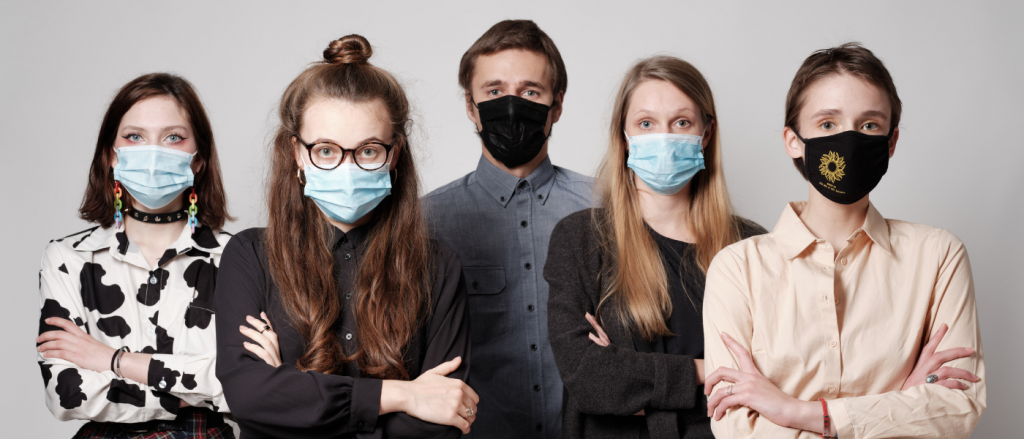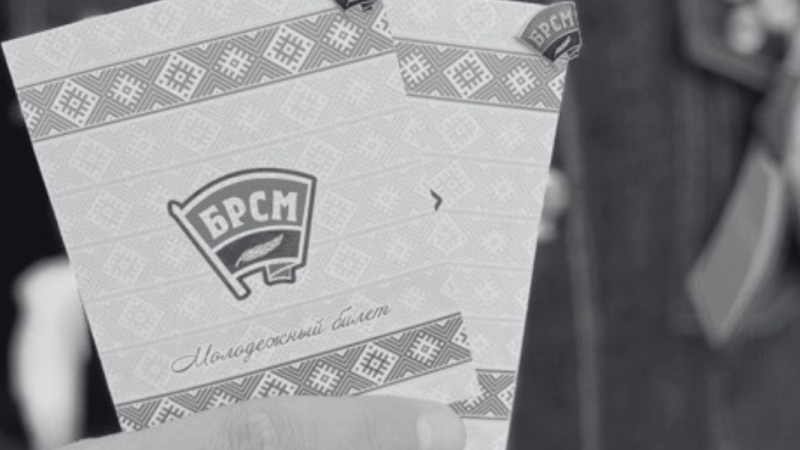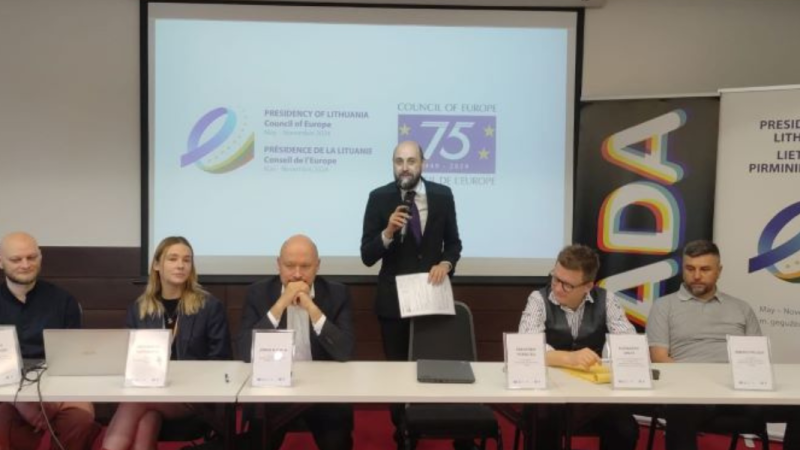“That equates to the end of civil society in Belarus”

Belarusian blogger Sergei Tichanovsky was sentenced to 18 years in prison. Not only the husband of the well-known opposition leader is in a desperate situation. WELT spoke to the chairwoman of the Belarussian National Youth Council RADA, Marharyta Vorykhava.
More than a year ago, falsified election results sparked massive protests against Alexander Lukashenko in Belarus. From the beginning, the regime used force to oppose the demonstrations. The blogger Sergei Tichanovsky, the husband of the opposition leader Svetlana Tichanovskaya, was sentenced to eighteen years in prison on Tuesday, state media reported. The regime also tightened its crackdown on civil society organizations. Many associations were dissolved without warning, including the National Youth Council RADA, whose chairwoman Marharyta Vorykhava has since lived in exile.
WELT: In July, a number of NGOs and civil society organizations were liquidated by the Belarusian Ministry of Justice, including RADA. Did that come as a surprise to you?
Marharyta Vorykhava: We expected something like this to happen, but not on such a massive scale. More than 270 organizations have been liquidated since July 23, which marked the end of civil society in Belarus. In general, governments understand that NGOs build the culture and comfort of civil society and public space. They serve as platforms that enable people to express themselves, to educate, to create, to get involved in political processes and in cooperation with the government, building a country that everyone would enjoy living in.
In Belarus, however, the government sees civil society as a threat. Lukashenko’s regime is therefore trying to escalate the conflict and deceive all those who stand up for their freedom and rights.
WELT: How did you experience the day on which RADA was dissolved?
Marharyta Vorykhava: It was of course a very stressful situation to see civil society being destroyed. On July 23, the dissolution of one civil society organization after the next triggered a huge flood of emotions. The level of stress we went through changed our perception of such situations and made us perceive the events as a bad joke. Under normal circumstances, banning our organization would have been a serious matter that would have cast doubt on all of our activities; we would have looked for alternatives, lodged an objection.
But this has long since ceased to work in Belarus – the courts’ issue rulings without considering the importance of an organization’s activities. The government does not listen to its citizens, does not respond to their demands. The only way for us to deal with this situation was through humour. So we published a post with sarcastic quotes from representatives of various NGOs. We wanted to be more humane about the situation.

WELT: Can you continue your work?
Marharyta Vorykhava: We are not legally allowed to do that. We are not allowed to call official meetings or organize events. However, the breakup is not that of critical news for most organizations – because of the corona pandemic, civil society has shifted into the digital space, the organizations can continue to do what they have been doing all these years: organize events, record podcasts, write resolutions, publish articles, conduct surveys.
This work can go on, but we are all aware that as representatives of active civil society, and especially by acting on behalf of liquidated organizations, we are seen by the government as a threat.
WELT: You are currently in exile, first in Vilnius, now in Kyiv. Why did you choose to do this? Do you face persecution?
Marharyta Vorykhava: Yes, that was the reason I left. The government in Belarus believes that organizations are run by one person, so everything starts from the top. They probably just understand the structure of Lukashenko’s regime, in which the leader is the only element that keeps the system alive. Thus, when the news of the massive wave of prohibitions began to spread, chairmen of civic society organizations were first to consider leaving the country to stay safe and continue their duties. Many were forced to leave the country.
WELT: Did you go alone?
Marharyta Vorykhava: The entire Secretariat of RADA is now abroad because of the risk of political persecution, but most of the council members are still in Belarus. I was forced to go out alone, without family and friends. That was a great challenge for me, but my colleagues from RADA were always there and supported me all along.
WELT: You are only 20 years old. Was it difficult for you to leave Belarus and live abroad now?
Marharyta Vorykhava: It was difficult for me to understand that I can no longer see my parents, visit my friends and go back to my favourite places. It was really tough in that regard, but I’ve gotten a lot stronger over the last few years. It was hard, of course, but not as hard as it would have been if I had stayed in Belarus and ended up in prison. For me and many others, it was the best and only way out.
WELT: Did your activities affect your family?
Marharyta Vorykhava: Fortunately not. Although my family does not support the regime’s violence, they have never been found to be “illegal” and are not persecuted by the state. I very much hope that they will continue to do well. This is particularly important to me now as in the event of any danger I have no way of quickly contacting and helping them.
WELT: A particularly notable feature of the protests in Belarus is their female leaders. Do you feel connected to them?
Marharyta Vorykhava: Yes, definitely. Belarusian women have become the face and soul of the protests. Svetlana Tichanowskaja, Maria Kolesnikova and Veronika Tsepkalo have inspired many citizens in Belarus to defend their rights in a peaceful way. There were huge rallies by women, the symbols of which were white clothes and flowers.
These peacefully protesting women’s groups have become the symbolic indictment of Belarusian society against the violence perpetrated by the government. We contrasted cruelty with something so pure, naive and symbolic – that was our romantic heroism. To be part of such a community of women was and is indescribably honourable.



